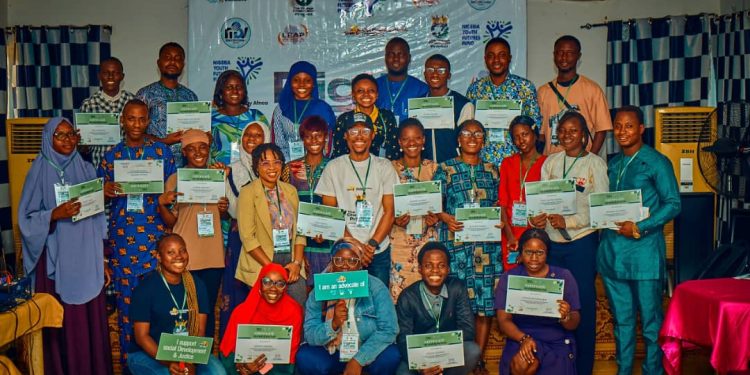The Get Healthy Africa Initiative (GHAi), in collaboration with the Nigeria Youth Futures Fund (NYFF), is set to host the Change Champion Conference on January 11, 2025 in Osun State.
This conference marks the culmination of the Change Champion Project, a six-month youth empowerment initiative that has made significant impacts in communities across Osun State.
The project empowered 30 young leaders with skills in digital advocacy, social media campaigning, storytelling, and community engagement.
According to Jelilat Oladejo, Administrative Officer of the Change Champion Project, “the conference will provide a platform to showcase the participants’ achievements and highlight the project’s impact on community development”.
The conference will bring together stakeholders, young advocates, and community leaders to celebrate the successes of the initiative and discuss the future of youth-driven social change in Nigeria.
Registration for the conference is free, but compulsory for attendance. Interested individuals can sign up via this link: https://shorturl.at/nAT9k
During the conference, the GHAi Positive Change Fellows will be showcased and formally inducted as ambassadors of social change.
The Change Champion Project has set a new benchmark for youth advocacy in Nigeria, emphasizing the power of digital tools, storytelling, and grassroots engagement to drive sustainable change.
Through workshops, field missions, and collaborative networks, these young champions were equipped to drive social change in their localities.
A standout success story from the project is Barakat Sanni, who utilized her digital advocacy training to launch a campaign focused on improving access to education for girls. Her campaign garnered widespread support, showcasing the power of strategic online engagement in creating meaningful change.
Similarly, Tolu Morakinyo and Aanuoluwaposimi Mary spearheaded impactful campaigns addressing youth unemployment and gender equality, respectively. Through compelling storytelling and digital content, they sparked crucial conversations and actions on these pressing societal issues.
The project also conducted a Community Fact-Finding Mission, where participants identified key challenges in areas such as education, healthcare, and water sanitation in underserved communities. This data-driven approach has already contributed to local advocacy efforts, including initiatives aimed at improving access to clean water in rural areas.

